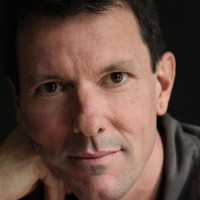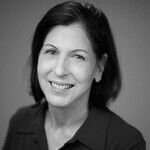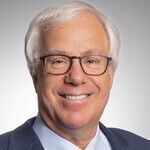Sixteen years after a trembling Muhammad Ali lit the Olympic flame to open the Atlanta games, his fire burns brighter than ever. Scores of stars and celebrities are gathering Saturday in Las Vegas for a hero's fest to mark Ali's 70th birthday. ABC will record the event and air it next week.
How did this guy become a hero?!
He was an obnoxious braggart as a young fighter. He jolted America by joining a separatist group so extreme that it rejected even war protests as slave master politics. He was cruel in the ring — punishing Ernie Terrell and Floyd Patterson because they continued to call him "Clay," his original surname. He scandalized mainstream America by refusing to be inducted into the armed forces, declaring, "I ain't got no quarrel with them Viet Cong."
The only thing in his early life that stood to make him heroic was his mythic boxing ability. But that wasn't nearly enough. To get from where he was to where he is in the public mind today, he had to get knocked down.
And he did. The 15th-round knockdown by Joe Frazier was only the most obvious one. For 3 1/2 years, he was knocked out of his career for claiming conscientious objector status and refusing military service. This came at a time when millions of privileged kids avoided service and advanced their careers by getting deferments and going to college. Eventually, the Supreme Court threw out Ali's conviction on an 8-0 vote (Thurgood Marshall abstained), but it couldn't give him back his youth.
As a result of his 3 1/2-year suspension — as Ali's trainer told him — nobody ever saw him at his best.
Then Ali got knocked down again. In his quest to regain the title from Frazier, Ali saw Frazier flattened by George Foreman. Two months later, Ali lost to Ken Norton. That created a foursome atop the heavyweight division: Ali, two fighters who had beaten Ali, and George Foreman, who had knocked them both out in the second round. "The Greatest" never looked further from his boast.
When Ali and Foreman signed to fight in Zaire — the 32-year-old twice-beaten Ali vs. the fierce 26-year-old undefeated champion — Jack Dempsey, Joe Louis and almost anybody with an opinion said Ali didn't have a chance. Foreman said people came up to him and said, "Please don't kill Ali."
But the mythic hero rises up after he gets knocked down — and he does it when nobody believes in him.
In the Foreman fight, Ali took the hardest punches in his life through the first four rounds, including an uppercut in the third round that Ali later said seemed to blow his jaw off.
In the fifth, Ali was again on the ropes taking a pounding, and you can hear on the film over the roar of the crowd the terrified voice of Ali's trainer, Angelo Dundee, screaming to his fighter: "Careful. Careful. Careful. Oh, careful!" Ali later wrote, "In all my life I had never heard the sound of fear from my corner."
Ali was flat on his feet, leaning back with his butt wedged between the top ropes. He couldn't dance; he could only duck. Foreman was taking his hardest shots, trying for a knockout. And Dundee still was screaming frantically: "Careful! Careful, Ali! Careful!"
Then, with 30 seconds left in the round, Ali opened up, putting on the sneer he wore when he went headhunting. He knocked Foreman's head back with vicious jabs and combinations, driving Foreman to the center of the ring and backing him up with a combination and a hard right. As Foreman came back at Ali, stumbling and flailing, Ali hit him again and again with hard rights, each time rocking Foreman's head back. The crowd was screaming and on its feet; Foreman was nearly off his. With five seconds left in the round, Ali, after turning the tide of the fight, hooked his left arm over Foreman's bent head, glared at his corner, made a face and sent a message: "Keep quiet. I know what I'm doing!"
Three rounds later, he knocked out the champion.
That was a pivotal moment in the heroic legend of Muhammad Ali. But it wasn't enough to make Ali the hero he is today.
A person becomes a hero because people make him one. And people won't make someone a hero unless they love him. Since he retired, Ali has suffered from Parkinson's disease yet maintained his dignity with never a hint of self-pity. He has supported worthy causes with quiet generosity. He replaced his boastfulness with playfulness and endearing modesty. He has said, "Peace in the world is my mission; boxing was just a vehicle."
On Sept. 11, he said of the terrorist attackers: "They are not real Muslims. They are racist fanatics who call themselves Muslims." He visited ground zero wearing a New York City Fire Department baseball cap and said: "Islam is not a religion of hate. It's a religion of love. I wouldn't be here representing Islam if it were terrorist."
So the embrace of Islam that caused a divide between Ali and mainstream America 40 years before finally became a bond — a way for him to bring comfort and solace and love.
Perhaps that is the last test of a hero. Heroes have the gift of greatness; they face fierce adversity; they undergo sacrifice; they are knocked down and left alone, and against all odds, they rise again. But even with all that, they still have to inspire the love that makes us want to see heroic qualities in them. If they can do that, they deserve to be called heroes. In today's diverse, complex and acrimonious world, inspiring widespread love is truly a heroic deed.
Tom Rosshirt was a national security speechwriter for President Bill Clinton and a foreign affairs spokesman for Vice President Al Gore. Email him at [email protected]. To find out more about Tom Rosshirt and read features by other Creators Syndicate writers and cartoonists, visit the Creators Syndicate Web page at www.creators.com.






View Comments